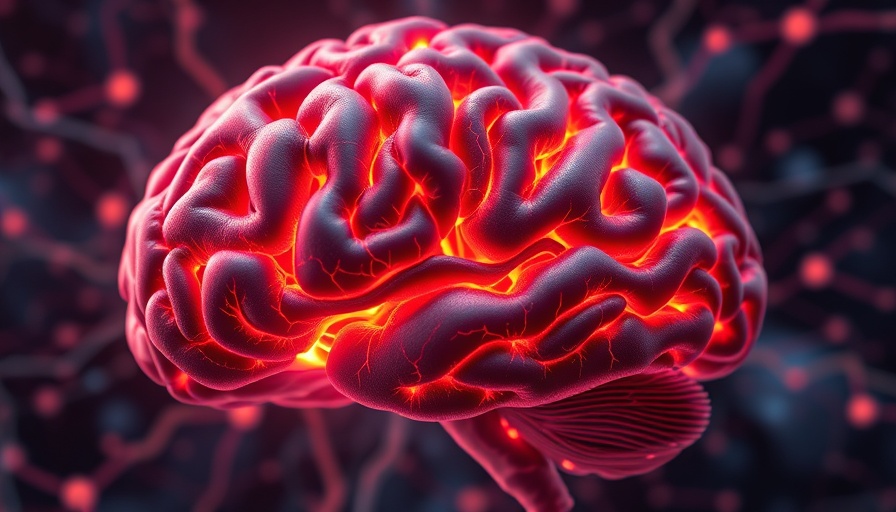
The Hidden Role of Neuroestrogen in Appetite Control
Estrogens have long been recognized for their essential roles in reproduction. However, recent research has unveiled a fascinating dimension of these hormones, particularly their brain-produced counterparts known as neuroestrogens. A groundbreaking study conducted by Fujita Health University highlights neuroestrogens' pivotal role in appetite regulation, offering intriguing new avenues for tackling obesity—an epidemic affecting millions globally.
What Are Neuroestrogens?
Neuroestrogens are estrogens synthesized in the brain, a mechanism recently discovered to bear significant implications for how we manage hunger and food intake. Lead researcher Dr. Takanori Hayashi sheds light on the melancocortin-4 receptor (MC4R), an essential receptor that governs our food consumption. The study indicates that neuroestrogens boost MC4R expression in the hypothalamus, which not only suppresses hunger but also enhances leptin sensitivity, a hormone responsible for regulating energy balance.
Study Insights: A Comparison of Mouse Models
Comparative studies using various mouse models provided fascinating insight into the role of neuroestrogens. Mice that lacked estrogen production exhibited significantly increased weight and food intake compared to their counterparts, which could produce neuroestrogens. Remarkably, when the aromatase gene responsible for increased neuroestrogen production was activated in selected mice, their food consumption linked to MC4R expression dropped notably.
Why This Matters: Implications for Health and Wellness
The implications of these findings could be revolutionary. Obesity is a leading cause of various health issues, including diabetes, heart disease, and certain cancers. The research suggests that by targeting neuroestrogens and their mechanisms, new treatment approaches could emerge which might empower individuals to maintain a healthier weight more effectively and naturally.
Navigating the Future of Obesity Treatment
As scientific communities unveil more biological pathways linking hormones to bodily functions, we could see a shift in treating obesity and related disorders. Neuroestrogen-centric treatments might offer a holistic and more efficient approach to weight management. Furthermore, such treatments could complement existing health and wellness strategies aimed at fostering a balanced lifestyle—one that’s particularly important as obesity rates climb steadily.
Encouraging Discoveries and Community Health Initiatives
Communities are also taking note of these developments. Health and wellness centers across cities, including San Antonio, have started integrating educational programs about nutrition and metabolic health based on the latest research. It becomes vital that community health efforts align with emerging findings like those of neuroestrogens, ensuring that people have access to the most current and effective health information.
Moving Towards a Healthier Future
This study emphasizes the importance of hormone balance in weight regulation and invites you to explore how lifestyle choices can complement these findings. Simple changes in diet and exercise can significantly influence the body's hormonal health, thus enhancing your journey towards optimal health and wellness.
Call to Action: Take Charge of Your Health Today!
With new breakthroughs like neuroestrogens on the horizon, it's vital for you to stay ahead in your health journey. Engage with local health and wellness events to learn more about sustainable living and natural approaches to weight management. Discover how you can utilize community resources to foster a healthier lifestyle—because your health is your wealth.
 Add Row
Add Row  Add
Add 




 Add Row
Add Row  Add
Add 


Write A Comment